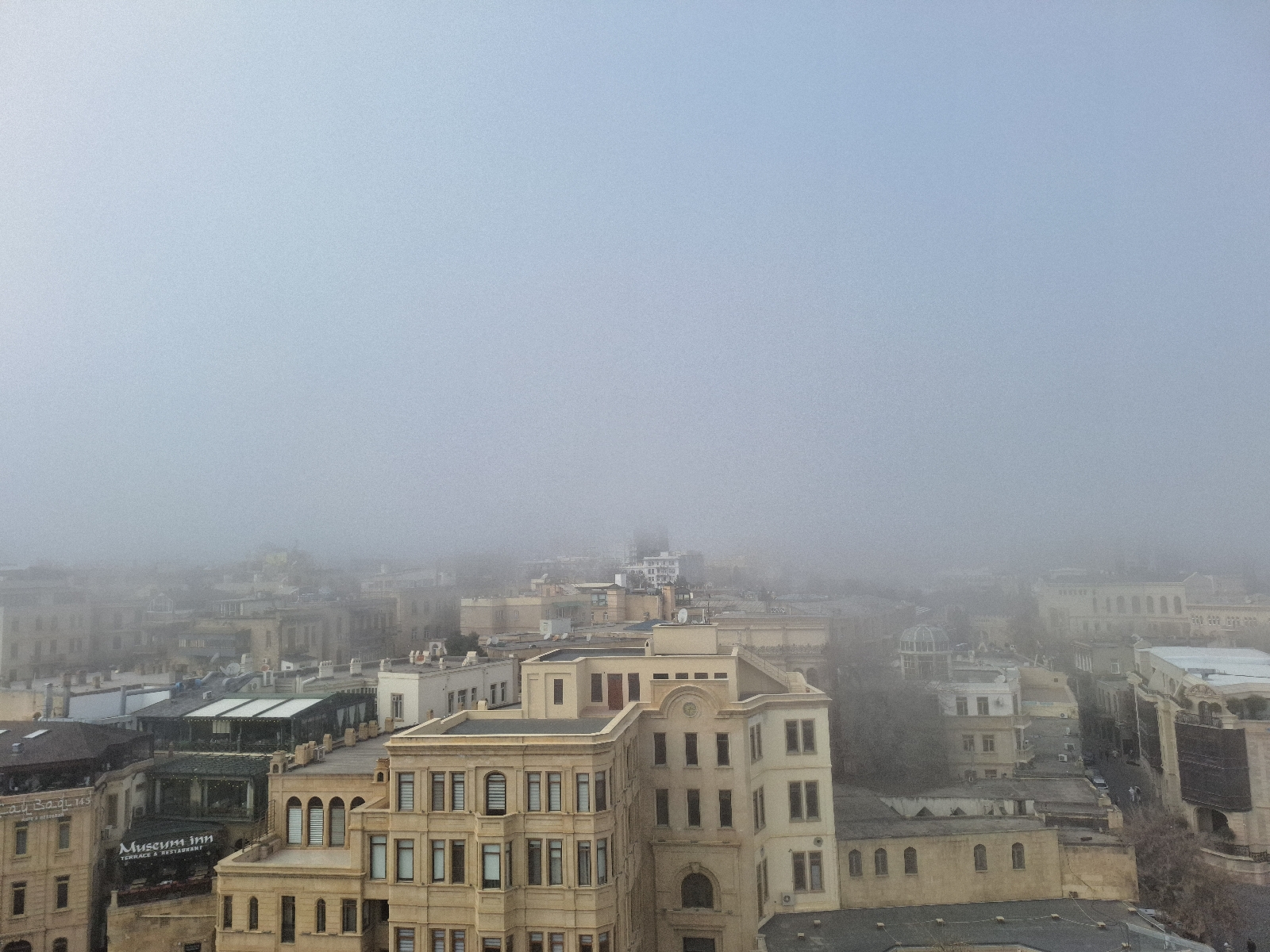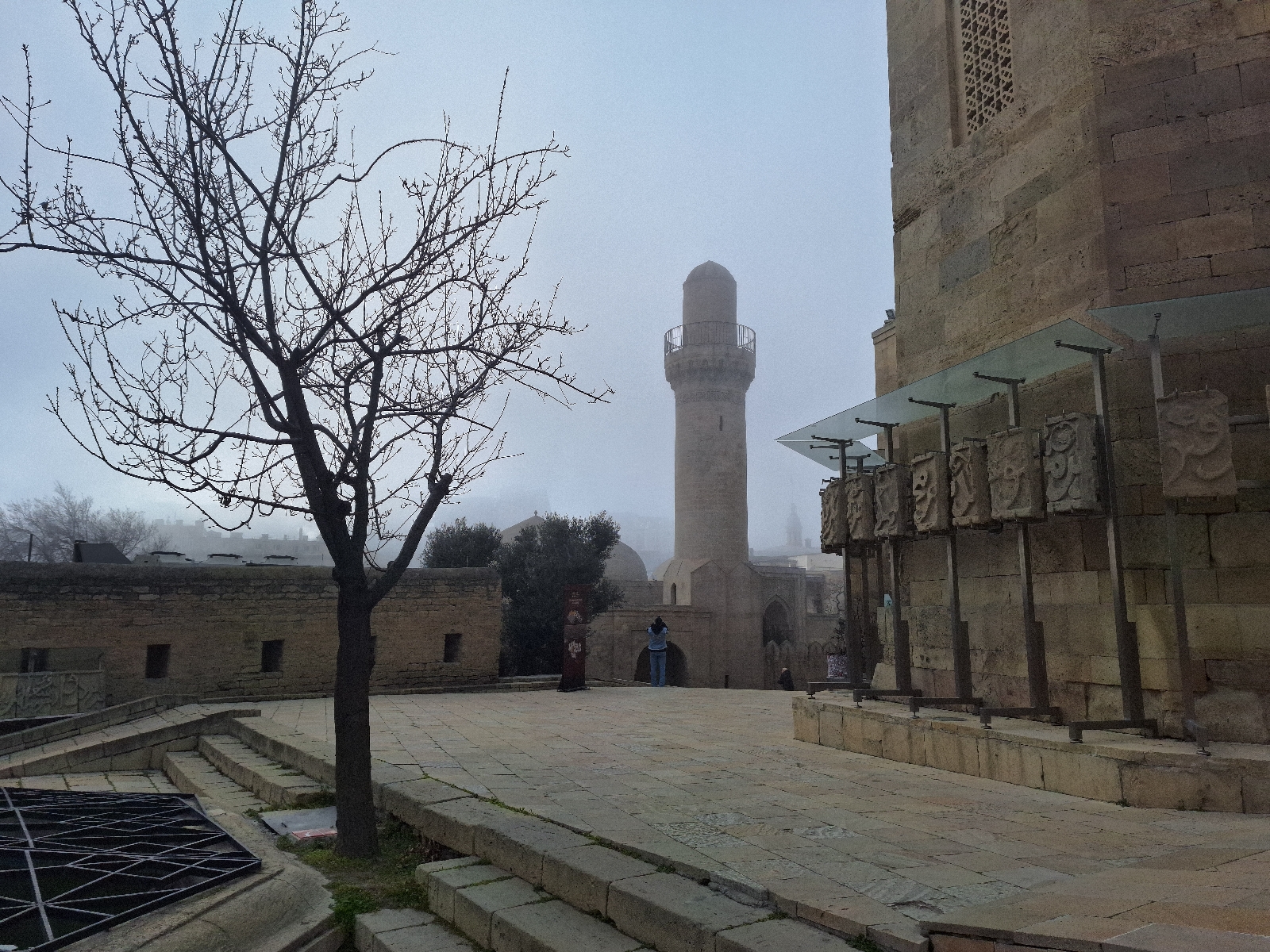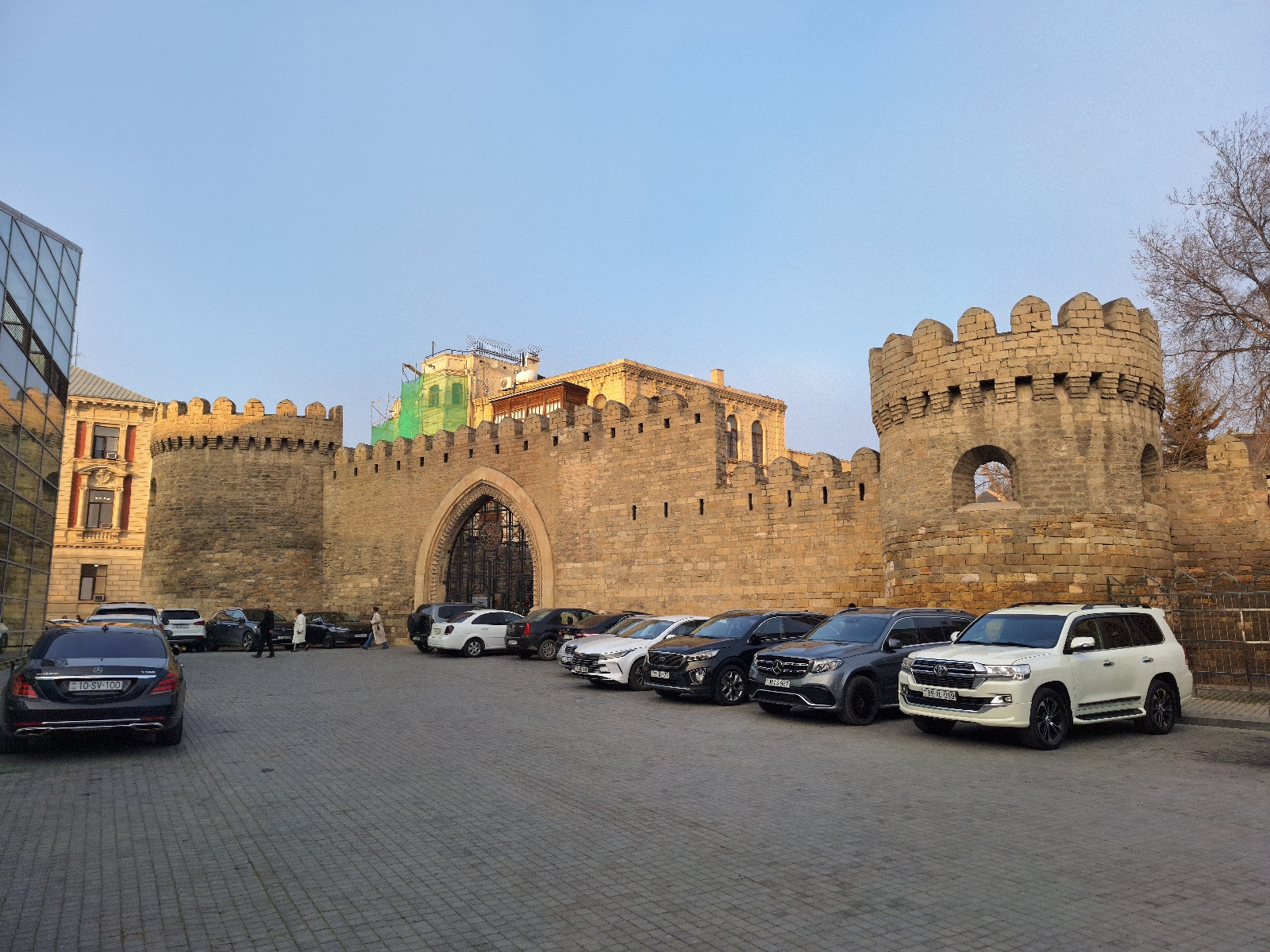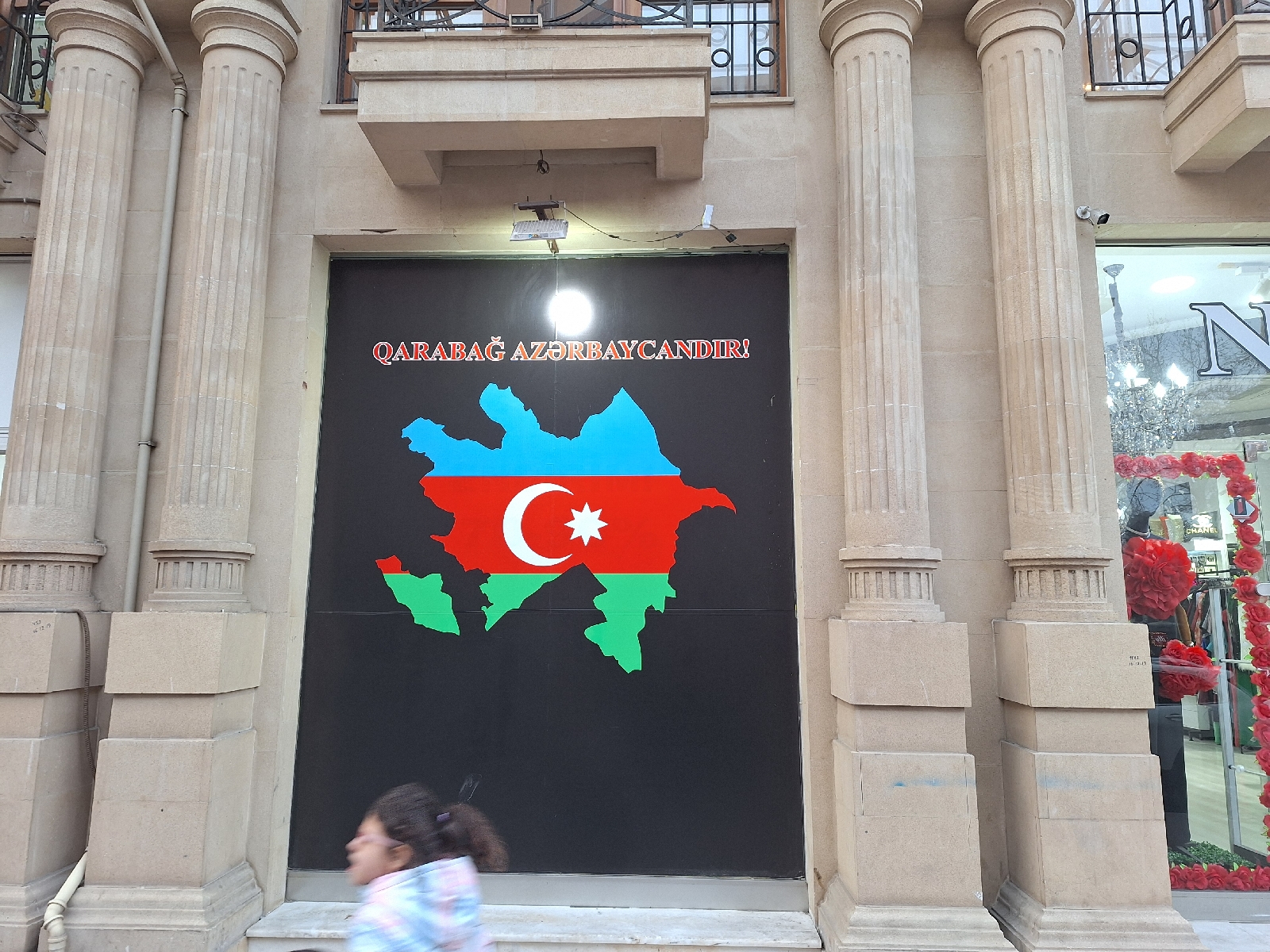Baku has been inhabitated for over 8,000 years. An important Caspian port on the silk road, the city's heyday was during the Shirvan period (c. 1,200 to 1,500 C.E.). I joined a free walking tour lead by Aynur (1). As we were setting out, I heard my name; it was Susanna from yesterday. Aynur asked her to join us. Susanna said "today" in Russian and "airplane" in English, I gathered she was leaving Baku today.
My inuition about the city's architecture had been correct. The city burst out of the historic walls in the late 1800s when a use was found for the oil abounding in this "land of fire." The oil millionaires brought in architects and builders from Europe during during the Belle Epoque era, bringing the style of Paris with them.
The rulers during the Shirvan period were the Shahs, and their Palace, simply named Sirvanshah, is in the center of
Içərişəhər. Içərişəhər means inner city (2), but the area is called the old city by foreigners (3). We had a nice walk past the Palace, the Museum of Miniature books (4), mosques (5), and to the Maiden Tower. Dating from the the 1,200s or earlier, the tower was probably defensive in nature, also serving to guide ships into the harbor. The story goes that a young woman threw herself from the tower after her father refused to allow her to marry the man she loved.
After the tour, a rooftop tea house beckoned. I enjoyed a nice lunch, watching buildings disappear as fog rolled in off the Caspian. The view from the top of the Maiden tower was limited by the fog (6). The Shirvanshah Palace had reproductions of various historical artifacts which had been plundered by various conquerors and are now in foreign museums.
A nice walk along pedestrianized streets to the train station and the bus to the airport ended the day (7). Going through security, they asked in response to the x-ray scan:
"Do you have a Book?"
"Yes" I replied (I had three).
"What book? It's big" (out of curiosity, not concern).
"Dickens"
"Ah"
On the plane, I scored an exit row seat, and soon discovered why. The flight attendant approached and said (in English): "Do you understand what I'm saying?" Being probably the only native English speaker on the flight, I did understand and was able and willing to assist in the event of emergency (8).
(1) Her family is from Karabahk, occupied by Armenians from 1989 until February of last year, when Azerbaijan launched an assault and retook the territory. Given the sensitivity of the topic, I did not engage her on the issue.
(2) Almost immediately upon the dissolution of the Soviet Union in 1991, the country changed from the Cyrillic alphabet of their former Russian overlords to the Latin alphabet used in Turkey (a), (supplemented with some diacriticals, and ə, which is the schwa sound), as the Azerbaijani language is very close to Turkish (b).
(a) The Latin alphabet was adopted upon the creation of the modern Turkish state after the fall of the Ottoman empire in the wake of World War I. The Ottoman empire had previously used the Arabic script. I understand that neither the Arabic nor Latin alphabets are particularly well suited to the Turkish language.
(b) Aynur has been to Istanbul a number of times "We don't even need a passport," and "We can understand Turkish," the languages are so close (and they watch a lot of Turkish TV).
(3) Indians are frequently visitors to Baku. The city feels quite European and has all the high-end shops, but is easier and cheaper to get to (e.g., simple e-visa) than Europe.
(4) I was completely unaware that such miniature books existed. The wife of one of the oil men brought these back from her travels.
(5) Outside the Juma Mosque, I asked Aynur if she were fasting for Ramadan. "No, people here at not very religious." She was wearing a head scarf because she "was cold."
(6) Descending the narrow stone stairways, a scrum of boys from a school field trip tried to push past me, while the teachers tried to corral them out of the way.
(7) At dinner in a nice basement taverna, I fell into conversation with Pete from Thailand, who had just arrived to Baku. Trying to pay for dinner, his card did more work. This happened to me about 40% of the time here (c). He was quite stressed, as he did have any local currency. Covering his meal myself (all of $10; my card worked), I told him to pay it forward, a concept with which he was unfamiliar.
(c) I had to pay cash at the hotel, which I do not believe I have done elasewhere this century.
(8) English is the official language of aviation. On this Azerbaijan Airlines flight, the pilot and flight attendants (all Azerbaijanis) communicated with each other in English. Aviation language around the world is standardized (e.g., "prepare doors for arrival, cross check.")
Near Shirvanshah Palace
Italian-designed fountain
At Juma Mosque
In Baku
Fog rolling in from the Caspian
They know how to serve tea properly
Maiden tower entrance and view
Always a good combination
In the Shirvanshah Palace
The ubiqutous president, Heydar Aliyev
Behind Shirvanshah Palace
Two lions flanking a bull is the symbol of the city
Play of fog and sunlight on the flame towers of Baku
Late day
Karabahk is Azerbaijan
Near the train/bus station

























No comments:
Post a Comment